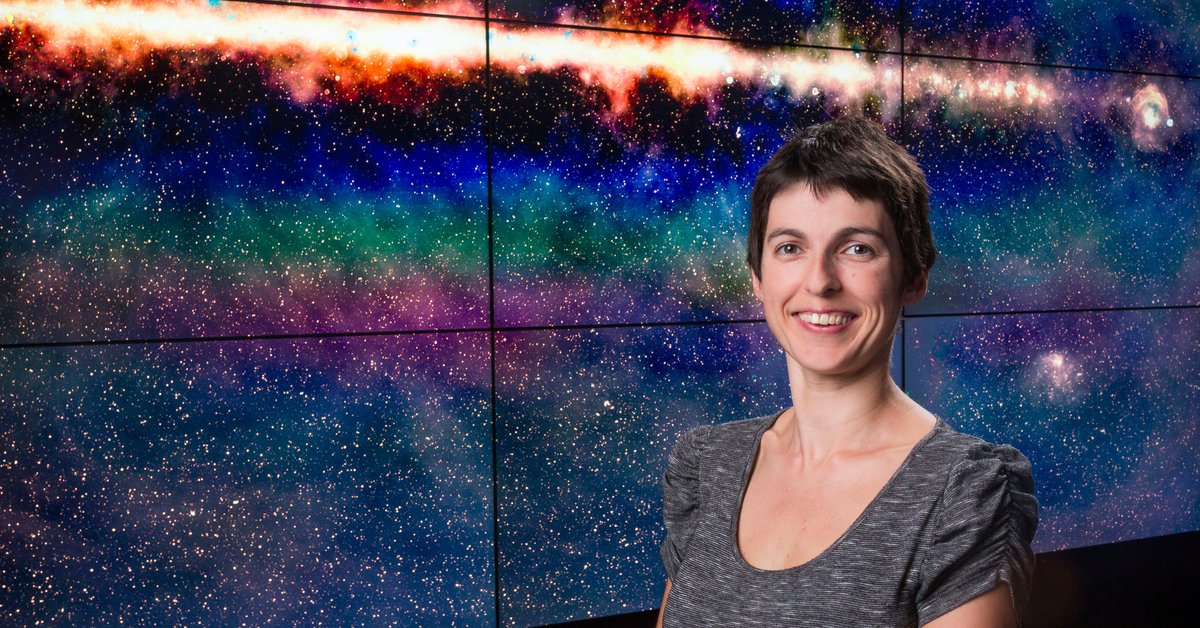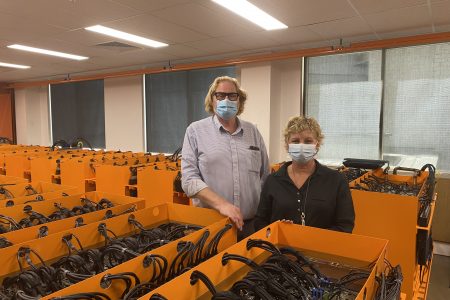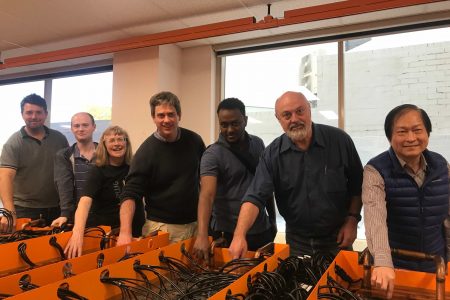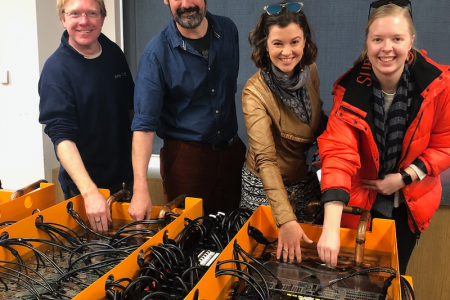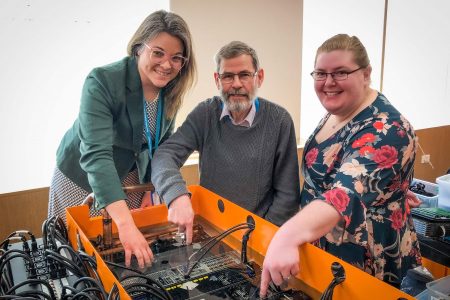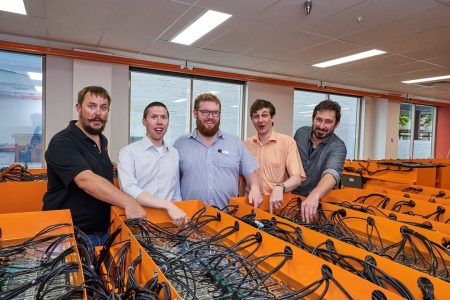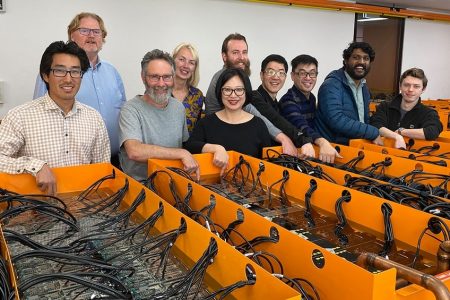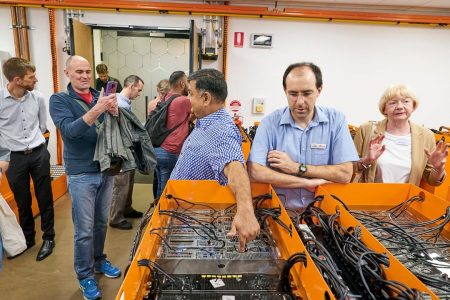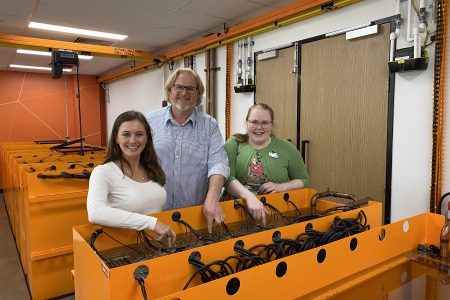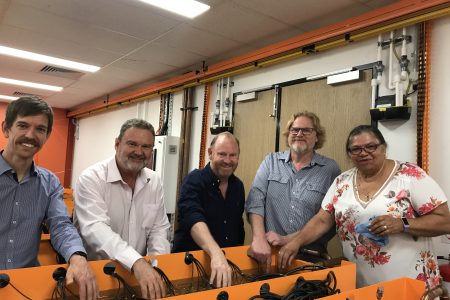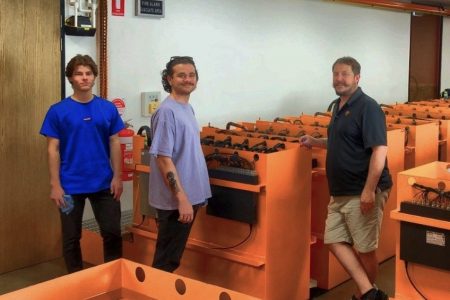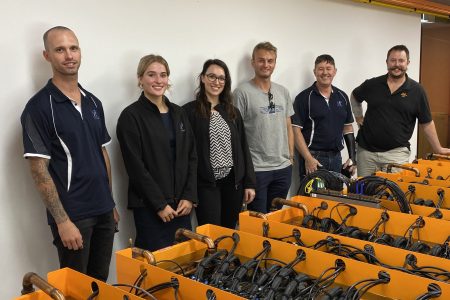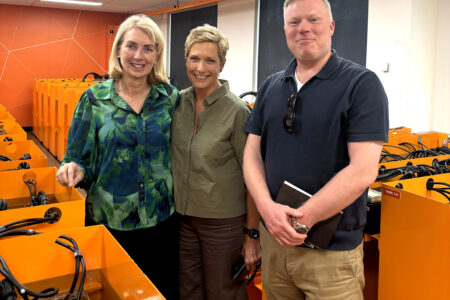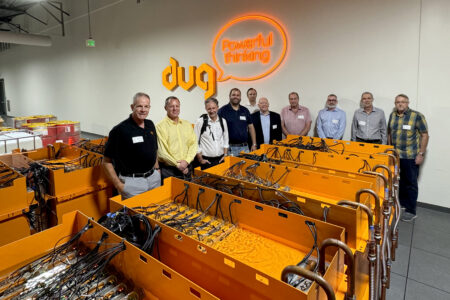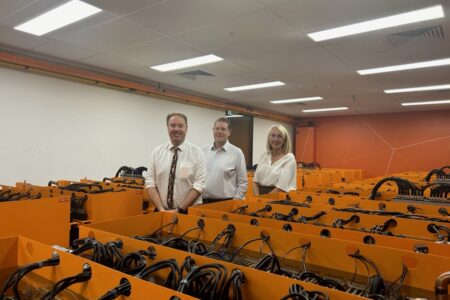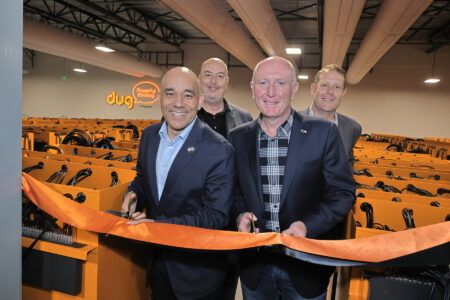Huge congratulations to Dr Natasha Hurley-Walker on being awarded the prestigious Anne Green Prize by the Astronomical Society of Australia!
The Anne Green Prize recognises a significant advance or accomplishment by a mid-career scientist and honours Professor Green’s extensive contribution to astronomy following her retirement in 2017.
An Australian Research Council (ARC) Future Fellow from the Curtin University node of the International Centre for Radio Astronomy Research (ICRAR), Dr Hurley-Walker’s work was instrumental in creating a new vision of the entire southern sky in radio colour.
This crucial work enabled the imaging of hundreds of thousands of black holes in distant galaxies, and the identification of a remnant supernova that lit up the sky for Indigenous Australians when it exploded some 9,000 years ago (three separate papers here).
We recently featured her work on our blog. You can read more about it here. (Spoiler alert: she helped discover a peculiar object tucked deep in our galactic backyard. It even blinks!)
Watch her captivating TED Talk on radio astronomy as a powerful way to look into the origins and structure of the universe here.
We’d also like to extend our heartiest congratulations to four other recipients of this year’s Astronomical Society of Australia awards:
- Maria Djuric, University of Sydney, winner of the Astronomical Society of Australia’s Bok Prize 2022 for outstanding research by an honours student or eligible masters student.
- Dr Adelle Goodwin, Monash University/Curtin University/ICRAR, winner of the Astronomical Society of Australia’s Charlene Heisler Prize for the most outstanding PhD thesis.
- Dr Adam Stevens, The University of Western Australia/ICRAR, winner of the Astronomical Society of Australia’s Louise Webster Prize 2022 for outstanding research by a scientist early in their post-doctoral career.
- The Commonwealth Scientific and Industrial Research Organisation’s (CSIRO) ASKAP radio telescope team, winner of the Astronomical Society of Australia’s Peter McGregor Prize 2022 for innovation in astronomical instrumentation.
For more information, visit here.


